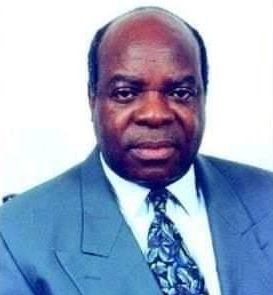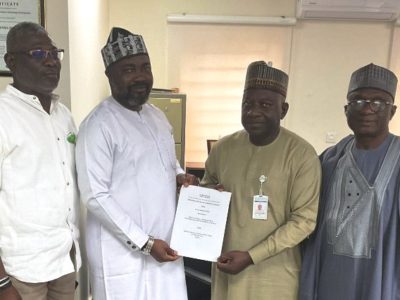Have you seen the recent advert in the papers by the presidency announcing the start of work by the ‘Presidential Task Force or Restructuring of Government Institutions/Organizations in the Telecommunication and ICT Sector in Nigeria?
If you have, you would probably agree that some agencies would soon be erased or made departments within other agencies in reflection of government’s desire to cut out duplicity, save administrative costs and get more focused with its ICT priorities.
The general public has been enjoined to send in their comments to the Task Force. A paragraph I the speech by the Secretary to the Government of the Federation, Chief U.J. Ekaette, who inaugurated the task force 29th August 2006, offers a useful insight into the direction of things. Government wants to make its commitments to ICT accomplished and it wants a streamlining of these commitments so as to have very feasible and scalable goals. Hear chief Ekaette:
“Government has identified the need to establish a framework for effective coordination of the activities of various Ministries and organs in the ICT sector. The objective in this regard is to achieve convergence within the sector, eliminate duplication of functions and achieve a more effective utilization of personnel and facilities.
The terms of reference of the committee include:
- To study the statutory functions of existing Ministries and structures set up by government that are involved with policy making, regulation and implementation of government policies that concern the telecommunication, broadcasting and ICT sector.
- To identify areas of modern innovations in the telecommunication, broadcasting and ICT sector that enjoy common mode of operation with a view to ascertaining and stating the implication and viability of establishing a common regulatory regime for such mode of operation;
- To understudy the implication of having different supervisory agencies or commission for content and infrastructure in the telecommunication, broadcasting and ICT sector….”
The task force terms of reference clearly pre-admit that the Nigerian Broadcasting Commission (NBC) has lost its role in the scheme of things and incite very strong reflection on the role of the National Information Technology Development Agency (NITDA) in Nigeria’s evolving ICT space. The dynamics of the industry and the inherent politics within the sector seem to argue strongly for the elimination of agencies that are only duplicating other ‘well grounded’ agencies. Increasingly, there is the perception that the Nigerian Communications Commission (NCC) that has in the last few years occupy the centre stage in the regulation of the ICT industry should be allowed to take on more tasks loosely apportioned to other agencies in the face of technology convergence.
Because technology has converged to make the NBC irrelevant, the Nigerian government appeared set to adopt the more dynamic approach of putting the roles of the NBC under a bigger and more structured NCC. The other option is to allow the NBC to continue to exist as a body charged with overseeing broadcast content. Again, that may only be the suspension of its total elimination to another day as telecoms regulation would move towards content supervision over time. At least, a department within a telecom regulatory body could still oversee content delivered by operators.
NITDA’s place in the scheme of things appeared a little tricky. To reduce NITDA to a department within a bigger Commission would kill the great ideas and vision behind its establishment. NITDA has a different role that is well defined by its founders. But it is clear that for a mix of factors, the agency has never been able to realize those ideas or live within the ambit of its vision. Overtime, it has become difficult to define what NITDA stands for or what are its clear tasks that separate it from any other government ICT agencies.
Is NITDA a regulator, a supervisory agency, a research organization or just a government body meant to create “job for the boys?’ Since its conception, it has battle for legitimacy, fought to be reckoned with in the drawing of yearly national budget, and asked to be recognized as a body with some relevance. Sadly, it has never gone beyond acquiring the status of a body created without any weight of law. Unlike the NCC, the NITDA’s existence and relevance appear to be nebulous to the members of the national assembly who in the last four years have pondered over whether to grant it an institutional status to allow it get a slot in the yearly national budget or simply allow it to wither away in the wilderness of its own insignificance.
Its pioneer Director General, Prof Gabriel Ajayi, was able to apply his charismatic leadership to get some recognition for the organization and promote its relevance to stakeholders including cynics even while law makers dither over what to do with NITDA. Until his death, Ajayi won the respect and support of managers of very critical segments within the ICT space, many of which were his former students. After his death, NITDA’s vulnerability exposed to no end throwing questions as to whether it has a future in the unfolding information order.
And to compound its problems, it has in the last 14 months, struggled to define itself and put itself on a pedestal where stakeholders could vouch for its relevance. Unfortunately, the more it tries to do this, the more it becomes more exposed as a body trying to understand its own role. The issues are as complex as they are critical. You have a body begging lawmakers for recognition at a time when the dynamics of technology, the notion of convergence, and the politics of governmental administration tend to make irrelevant in the face of a more ebullient institution such as the NCC.
If the taskforce recommends that the NITDA should be phased out or made a department under the NCC, it would not be because the founders of NITDA didn’t have distinct role for it or that convergence has necessitated it being phased out; it would be because the drivers of the agency and a combination of other factors failed to allow the body to live up to its original ideals.





























